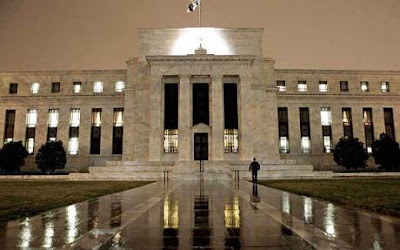
Conventional wisdom says the market has been pricing in massive QE2 since the Jackson Hole Fed retreat, and the upcoming announcement, if it comes in light of expectations, could trigger a strong sell-off. That is a very primitive understanding, in my opinion. Over the last couple of weeks, many prominent economists, several of which have the ear of Ben Bernanke, have come out and said that massive QE2 is a horrible idea given that we are in a liquidity trap and it could have long term damaging inflation implications. In fact, I think Bernanke and Fed has known this the entire time; they are not dumb.
The Fed’s goal is to instill confidence in the market, to make it clear they are READY to make large scale asset purchases if the economy shows it needs it. Language is the Fed’s most powerful tool, not action. The Fed is the lender of last resorts, not a wholesale tinkering machine. The market has not necessarily priced in trillions of QE2, but rather the fact that the Fed stands ready to take action. The economy has shown signs of improvement with the latest economic data. GDP and consumer confidence both came in above expectations this week, and represented a solid jump from last quarter. You need to understand what a light QE2 announcement would mean. It shows that the economy is recovering and doesn’t warrant further monetary easing at this time, a positive development for the market.
Fiscal stimulus has become so politicized and criticized by the public that there will not be any more significant boost from image-conscious politicians, and Bernanke has been trying to be the hero on his own. He has largely succeeded by instilling confidence in investors and consumers without further action. Concerns still exist regarding unemployment, but earnings season has provided evidence that the corporate landscape is very healthy. Companies have been holding off on new hires due to economic uncertainty, and the outlook is starting to firm up, even if the recovery is slow. Since when does the market react unfavorably to improving economic conditions?
The Fed’s language with remain dovish until the recovery really takes hold. Sure, massive deficit spending, in the long run, might trim the US’s lead as the world economic superpower, but we are not going the way of the Weimar Republic. In order to stem the tide, we need to stay the course right now and commit to greater fiscal responsibility in the future at a time when austerity does not endanger a fragile recovery. Over the next decade we as citizens need to recapture our voice and take back control of the political process which is currently dominated by narcissistic and self-important candidates on both sides of the aisle. The cronyism and special interests in Washington are what got us into this mess, and we need to reject corrupt leaders outright. Mistakes are a person’s most powerful learning tools, and it can be that way for this country.
Back to the markets. I expect QE2 to fall short of ‘expectations’, and a modest correction is very possible. That would be a healthy thing for the markets. We need to work off some of the artificial strength that has resulted from high QE2 expectations and simply price in the fact that our economy is growing again, albeit slowly. As traders we would welcome that type of action, as it would give us buy areas we could have more confidence in, rather than chasing a steep rally. There are exciting companies springing up all over the place both in the US and emerging markets that will lead us into a new era of technology, and sectors that are positioned to benefit from a rebalancing of the global economy. But don’t be fooled into thinking smaller QE2 is a bad thing. In fact, it would be the most welcome sign of all.
John Darsie contributed to this article.



